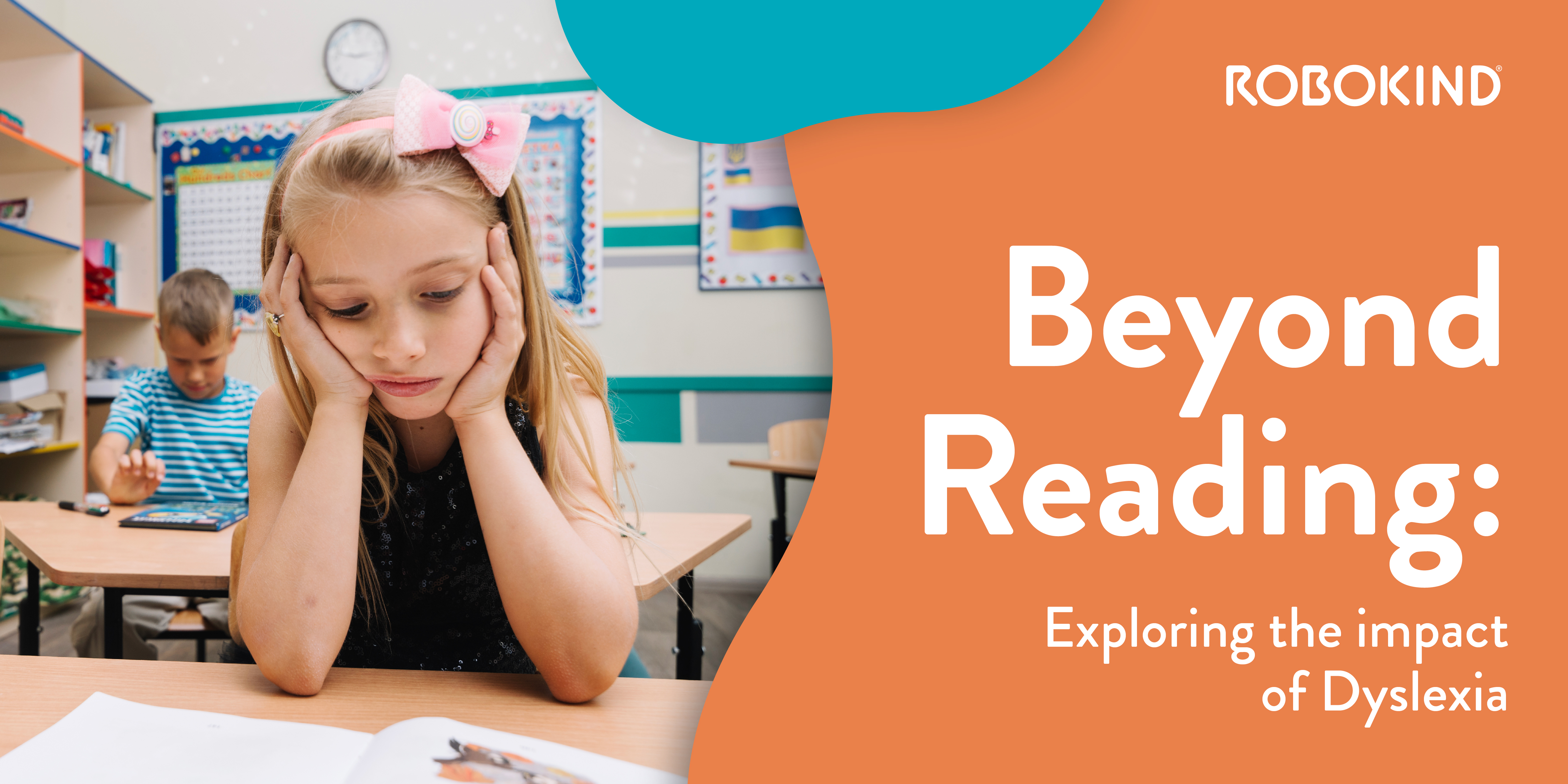Picture this: you're in class, working hard to keep up with your teacher, but every word seems to dance around the page. You can imagine how this would make it difficult to stay on task and could leave you feeling frustrated and discouraged.
What is Dyslexia?
Students with dyslexia, a specific learning disability that affects word recognition, decoding abilities, and more, often experience this kind of frustration when learning to read and write.
From studying the science of reading, we know that learning to read is incredibly complex. It requires our brains to connect graphemes (letters) to phonemes (sounds), string that connection together in the correct order, and further expand them into sentences and paragraphs.
An estimated 1 in 5 Americans have dyslexia, representing as many as 90% of all people with learning disabilities, according to the Yale Center for Dyslexia and Creativity.
Students with dyslexia have trouble matching the letters they see on the page with the sounds those letters and combinations of letters make. If a student struggles with this fundamental step, it makes the sequential steps of word recognition even more difficult.
.png?width=3000&height=1919&name=RK%20branded%20reading%20rope%20(scarborough).png)
Often times, dyslexia manifests as difficulties in reading, spelling, and comprehension. Dyslexia is not directly correlated with intelligence levels, and many individuals with dyslexia have above-average IQ scores.
Impact on Learners
Dyslexia can have a significant impact on a student's experience in the classroom. It can be difficult to accommodate the diverse needs of dyslexic learners, which can snowball into academic setbacks and decreased self-confidence. This can ultimately lead to an increase in problematic behaviors, anxiety, and depression.
"Since dyslexia, almost by definition, is unexpected, students with dyslexia will make many mistakes that may be interpreted as careless. Time and again, these students and their parents hear, “They’re such a bright child; if only they would try harder.” Ironically, no one knows exactly how hard the individual with dyslexia is trying."
-International Dyslexia Association
The continued experience of feeling frustrated and disappointed can grow into feelings of inadequacy. This can further generalize into lowered self-image, anger, and difficulty with social interactions. If unaddressed, these deficits can continue beyond the classroom lasting into adulthood. At times, it can even lead successful adults to mistrust their own capabilities.
Importance of Intervention
Dyslexia without intervention can negatively affect educational attainment, career opportunities, and overall well-being. However, with targeted intervention strategies, individuals with dyslexia can overcome obstacles and thrive academically and professionally. Multisensory learning approaches, assistive technologies, and personalized instruction can play a critical role in empowering students with dyslexia to unlock their full potential.
.jpg?width=8192&height=5464&name=1-099%20(1).jpg)
By raising awareness, implementing evidence-based practices, and supporting inclusive communities, classrooms can become environments where students with dyslexia feel empowered to succeed!
Our next blog in the "Beyond Reading" series will explore how RoboKind Phonics supports students with dyslexia by utilizing explicit instruction and breaking down phonics rules and patterns for improved decoding and blending.


